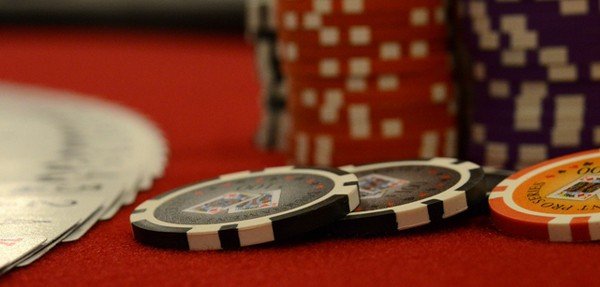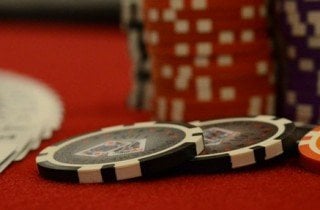Compulsive gambling, or gambling addiction, is a very serious form of process addiction. Learn the signs and how to treat it here.

Gambling addiction is more serious than many people realise. While most people are able to gamble responsibly, many others find themselves caught in the sticky web of gambling addiction, unable to escape.
Is Gambling Really an Addiction?
Gambling addiction, also referred to as an impulse-control disorder, is when a person gambles compulsively. This means they are unable to stop or control their gambling, even when they know that it is affecting their life in a negative manner. Whether they are depressed or happy, winning or losing, they will continue gambling – regardless of the consequences. Some say that these people simply have a gambling problem, but it is much more complex than that.
Problem gambling is gambling behaviour that affects your life in a negative way. Very much like alcohol and drugs, gambling addiction is considered a process addiction. Each time the addict places a bet, dopamine and endorphins flood the brain – eventually changing how the brain uses these chemicals, causing a dependence on the act of gambling to trigger the flow of these chemicals that cause you to feel happy and satisfied – very similar to the way a heroin addict needs heroin to feel ‘normal’. Once the brain has become re-wired to need these chemicals, the gambler has developed a gambling addiction.
Signs and Symptoms of Gambling Addiction
Gambling addiction has often been called the ‘hidden illness’ because unlike alcohol or drug addiction, there aren’t as many physical signs of addiction such as bad skin, weight gain or loss, etc. But what is similar to drug and alcohol addictions, is that problem gamblers are most likely in denial about their addiction, putting great effort into hiding or minimising the problem.
If you think you may have a problem with gambling, there are a few questions you can ask yourself to better determine if you really do have a problem:
- Do I feel the need to keep my gambling habits a secret?
- Do I feel compelled to gamble, even when I don’t have the funds?
- Are my family and friends concerned about my gambling?
If you have a suspicion that someone close to you is having a problem with gambling, there are several signs of gambling addiction that you can look out for:
- Preoccupation with Gambling.
The person is constantly thinking about gambling, having thoughts about how to obtain money for future gambling, and planning regular visits to their favourite gambling spots. - Building Tolerance.
Similar to alcoholism and drug abuse, the person’s need to spend more money on gambling in order to experience the same rush or excitement is insatiable. - Loss of Control.
The person has made many unsuccessful attempts to minimize or stop their gambling. - Withdrawal from Reality.
The person experiences mood swings, eventually becoming withdrawn, irritable and depressed when trying to stop their compulsive gambling. - Gambling as an Escape.
The person uses gambling as a means of escape from every day stresses. For the gambler, the moment the bet is placed all stresses and worries float out of the mind. - Chasing the Jackpot.
Despite major losses the previous day, the addict will return to gambling the very next day attempting to regain his losses. The addict will truly believe that he can regain the money lost despite much evidence of the contrary. - Lying.
The person will lie to their loved-ones, therapists, or colleagues in order to hide the magnitude of their gambling. - Illegal Activity.
The person resorts to criminal acts such as theft, fraud and embezzlement to help finance their gambling. Many end up stealing from their loved-ones. - Risked Relationships.
The person has endangered or lost an important relationship, job, or opportunity due to gambling. - Bailouts.
The person will rely on others to bail them out of a bad financial situation caused by their gambling.
Keep in mind, however, that almost all addicts will do everything they can to not only keep their addiction a secret from those around them – but they will lie to themselves as well. This often makes it hard to spot a gambling addict. Use your own intuition and investigate any potential signs or symptoms, and encourage them to get help or enter treatment.
Treatment of Gambling Addiction
There are many forms of gambling addiction treatment, including entering one of many addiction treatment centres equipped to deal with this type of process addiction. There are also many self-help programmes for gambling addiction, however most people are unable to recover on their own.
Similar to alcohol or drug abuse, the need to gamble is a way to cover up a more serious problem, such as escaping the pressures of everyday life, work and family stress, loneliness, low self-esteem, and depression. If someone is gambling as a way to forget about these problems, choosing to stop gambling will mean they must face these problems head on – which can be very scary, and will often keep an addict from ceasing their behaviour. For this reason, it is crucial that the addict learns coping skills in order to properly handle these everyday hurdles.
Gamblers Anonymous uses the 12 Steps method and aims to provide every gambling addict with a sponsor – someone who has suffered from the same addiction and has conquered it – who can give the recovering addict helpful advice and necessary support if they are struggling through recovery.
As well, cognitive behavioural therapy is known to be extremely effective when working through gambling addiction. It focuses on changing any unhealthy thought and behavioural patterns, re-wiring the addict’s brain to see gambling in a different light. Instead of using rationalisations and false beliefs as a crutch, problem gamblers are taught new and healthy ways to manage stress levels and decrease the need/urge to gamble.
Quitting Your Gambling Addiction
If you recognise a problem with gambling in yourself and want to quit, recognising these four elements of gambling and how to control them will be the most important part of your recovery.
- The First Decision to Gamble.
A person will only gamble if they have decided to. If you are experiencing a craving to gamble, call a family member or sponsor for help. Also consider the consequences of what will happen if you do give in and gamble. Find a productive task to take your mind off your craving and get into that activity immediately. - Money, Money, Money.
Without money, you cannot gamble. Dispose of your credit cards, and let someone else who is trustworthy be in charge of your finances. Ask your bank to set up automatic payments for you and only keep minimal cash on hand at any given time. - ‘Idle Hands are the Devil’s Workshop’.
If you stay idle, you may be tempted to gamble. Fill up your time with things that have no relation to gambling. Spend some quality time with your family, or take up a new hobby, such as a new sport or cooking class. Basically, the less free time you have on your hands, the better. - Don’t Tempt Yourself.
Do not put yourself in environments that may tempt you to gamble. Stay away from any facilities that have gaming machines, betting avenues, or poker tables. Block gambling sites on your mobile phone and home computer so you cannot access them easily when you’re experiencing a craving to gamble.
If you or someone you know is experiencing negative effects as a result of gambling, contact us for an assessment. Gambling addiction can have very serious consequences, and must be dealt with sooner rather than later to ensure a better chance at full recovery.




